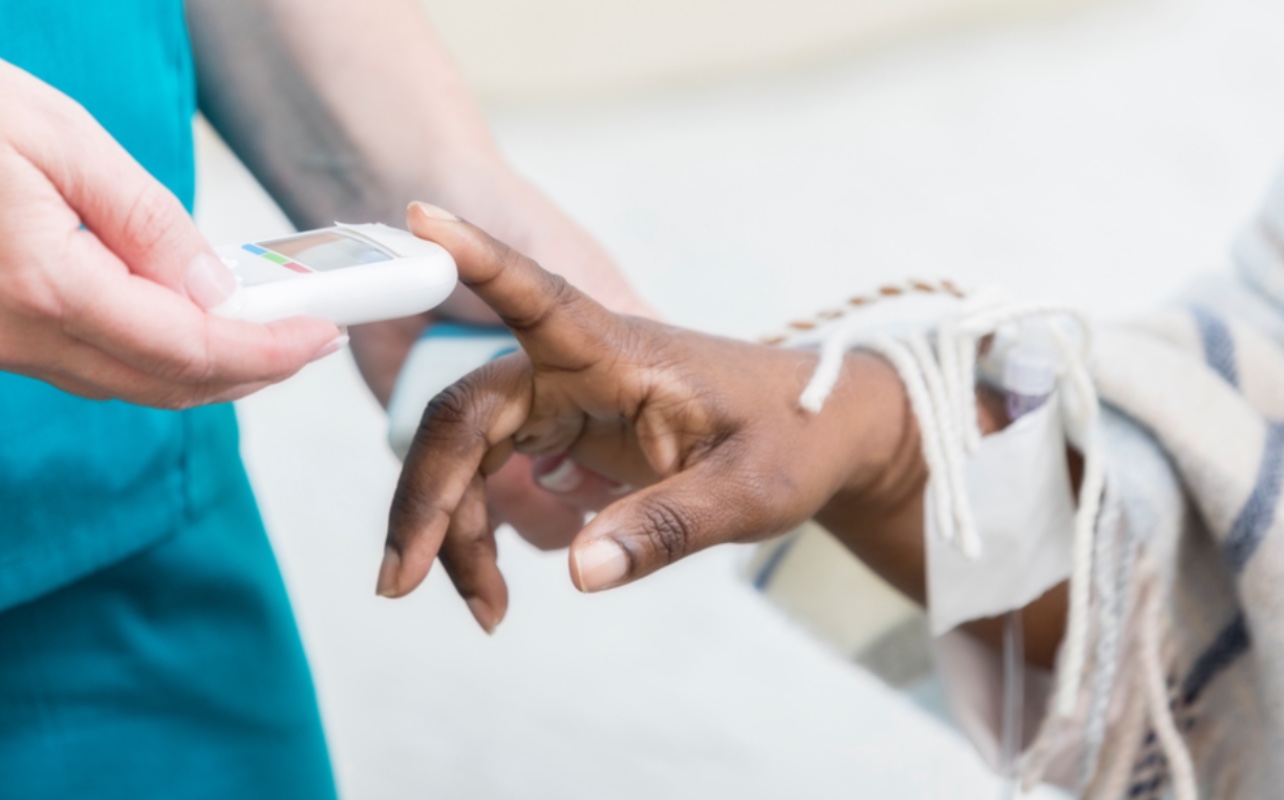June 13, 2024
Through the Your Diabetes Compass website, Black women gain access to diabetes self-management education and support services.
The Centers for Disease Control and Prevention has designed the Your Diabetes Compass, a pioneering tool tailored specifically for Black women with type 2 diabetes.
With 1 in 4 Black women over 55 living with the chronic disease, the Compass tool aims to provide invaluable information, resources, and support to navigate the challenges of managing the journey with type 2 diabetes. Recognizing the disproportionately high rates of type 2 diabetes among Black women and their low participation in personalized support services, the national public health agency designed the website with their unique needs in mind.
Your Diabetes Compass welcomes Black women to create customized guides recommending resources based on a quick self-assessment. They can also use the tool to explore a range of diabetes support topics.
“While not everything is within your control, monitoring can help you better manage diabetes,” the CDC states. Under this topic, Black women can access tools and information to keep track of blood sugar, A1C, eating habits, blood pressure, and cholesterol. Additionally, the Monitoring Diabetes page offers Continuous Glucose Monitors (CGM) and other resources focused on stress levels and overcoming challenges. A blood sugar monitor log is available to download straight through the website.
“Living with diabetes can be stressful, especially since it may also increase your risk for other health problems such as heart disease, vision loss, and kidney disease,” the agency states.
Through the Reducing Risk of Complications page, Black women with diabetes can take several steps to avoid other health complications and stay healthy. Resources include information on health and well-being, regular checkups, foot and eye care, blood sugar, vaccinations, talking about feelings, and practicing healthy habits. The CDC designed a Healthy Checkup Checklist to help keep track of appointments and check-ins.
The Compass tool covers information on what to eat and what to limit when living with diabetes. According to the CDC, “While what you eat has a big impact on managing diabetes, this doesn’t mean the end of delicious and satisfying food.” The Creative Eating and Cooking page offers tips on making healthy dishes, covering diet topics like carbs, proteins, and fats. The page recommends meals, eating goals, and portion sizes. Additional tips cover grocery shopping and eating while traveling.
The CDC reminds Black women living with diabetes that regular physical activity is a crucial part of managing blood sugar. The page is dedicated to making changes in the daily routine to increase physical activity as a way to feel healthier and energized. Information explains what it means to be physically active and its benefits. As the CDC emphasizes starting safely, it also advises ways to keep fitness routines fun and convenient.
The page provides motivation and encourages consistency, even in the smallest changes. Women can find haircare and workouts through the Increasing Physical Activity page.
A strong diabetes healthcare team should be respectful and open with information and communication. The CDC designed this page to ensure Black women seek quality care. Through a series of questions, Black women can access information and resources to connect with primary care providers and other diabetes specialists vital to their journey. It provides links to connect with Black doctors and culturally-aware medical professionals. The agency has also extended resources to help individuals prepare for medical visits effectively.
On this page, Black women can assess their current healthcare providers and take action to find providers suitable for their specific needs. The page guides visitors through insurance coverage recommendations and questions to ask during medical visits. Steps are provided for preparation before meeting with a healthcare provider. Online search tools like the Association of Diabetes Care & Education Specialists (ADCES) or the American Diabetes Association assist with finding local education programs.
Black women don’t have to manage their diabetes alone with the CDC’s Community Support page, which states, “the feeling of community a person has is one of the best ways to predict how well they will manage their diabetes, as help from family, friends, and others can reduce health risks.” On the page, individuals can find support in various ways. Formatted as a module, Black women can navigate the information as they find a peer support group and connect with communities of people managing chronic diseases. Information extends to family and friends who desire to learn ways to be more helpful.
Explore common mental health outcomes associated with stress and diabetes, like anxiety, depression, and diabetes burnout. A chart allows individuals to use the information to identify and understand stress-related symptoms. Self-care tips have been added as a resource to manage stress levels and lower the risk of illness. Individuals can click through different topics like the body, mind, spirit, and more as they practice self-care as part of their diabetes plan.
Through the Your Diabetes Compass website, Black women gain access to diabetes self-management education and support (DSMES) services, connecting them with trained specialists who can provide guidance, attentive listening, and continuous support in navigating daily self-care. According to the agency, research shows diabetes education helps lower blood sugar, blood pressure, and cholesterol levels, enhancing overall well-being and diminishing the likelihood of developing diabetes-related complications.
Additionally, the CDC’s YouTube channel offers a series overview of the Your Diabetes Compass tool for Black women living with diabetes.
This initiative builds on the CDC’s ongoing efforts to raise awareness and educate the public about prediabetes. In 2016, they partnered with the Ad Council, American Diabetes Association, and American Medical Association to launch the “Do I Have Prediabetes?” campaign. The campaign’s messages are strategically designed to reach all U.S. adults aged 40 to 65, focusing on communities most impacted by the chronic condition.
RELATED CONTENT: Sherri Shepherd On Health, Her Diabetes Journey, And Oprah Passing The Baton
Enter your Email Address below to get our fun-filled Newsletter!
© 2024 Black Enterprise. All Rights Reserved.

